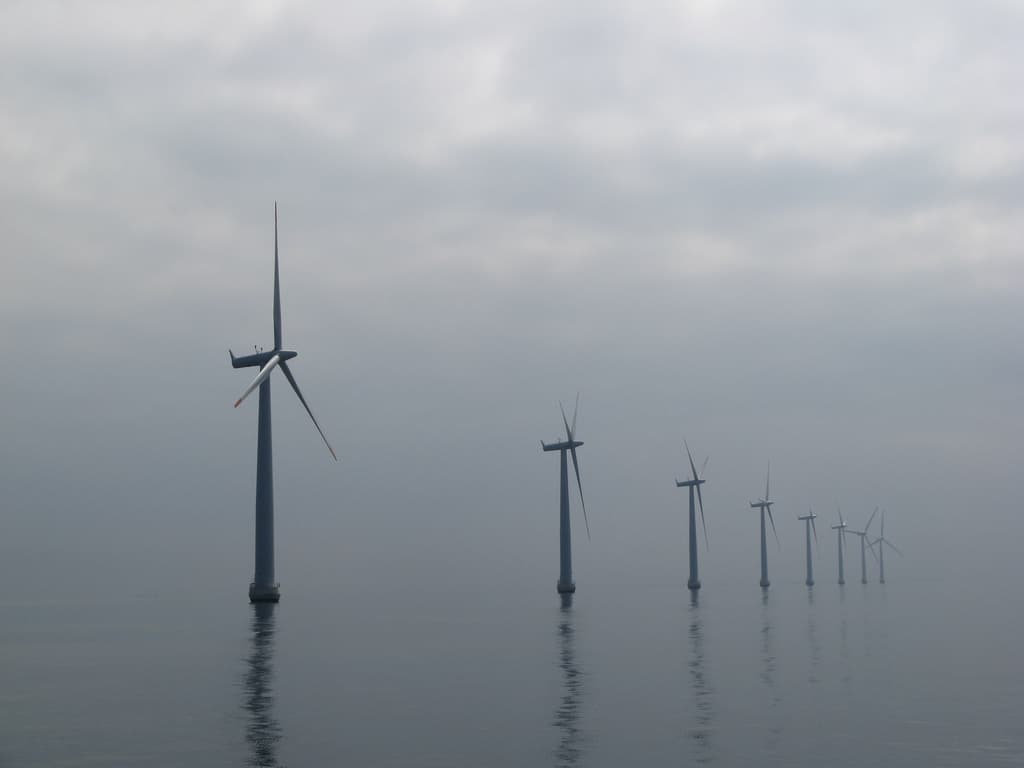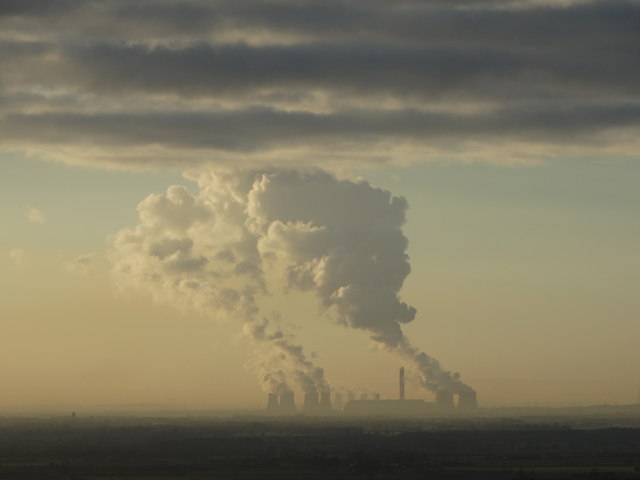In the run up to the EU referendum, environmentalists issued gloomy warnings about the UK’s approach to tackling climate change should it choose to leave.
The days after the referendum saw a ruthless shake-up of the cabinet, with the new Prime Minister Theresa May scrapping the Department for Energy and Climate Change (DECC), ousting major players and appointing new cabinet ministers to key departments including the Treasury, Department for Environment, Food and Rural Affairs (DEFRA) and the all-new Department for Business, Energy and Industrial Strategy (BEIS).
But what climate change regulation will we have left once the dust has settled?
We Still Have The Climate Change Act
Before the referendum, some environmentalists warned the 2008 Climate Change Act (CCA) might be unpicked if Britain voted to leave the EU. The Act, at the forefront of our legislation, obliges the government to cut emissions by at least 80 per cent by 2050.
But the Act is unilateral rather than coming from the EU, and it looks set to remain in place.
David Powell of the think tank New Economics Foundation (NEF) says: “It is important to remember that the UK has a piece of law that requires it to lead the world in carbon reduction. Unpicking that would be an extraordinary fight that nobody has shown any significant appetite for doing.”
The fifth carbon budget – which fulfils the requirement under the Climate Change Act 2008 for the Government to set five-year carbon budgets – was passed in the House of Commons on Monday with no opposition. Once debated in the House of Lords, the order will set the fifth carbon budget in law at a 57 per cent reduction in emissions by 2030.
On introduction of the order, the Parliamentary Under-Secretary of State for BEIS, Jesse Norman, said yesterday in the House of Commons: “Leaving the EU will bring challenges and opportunities to the United Kingdom. However, it does not change the fact that climate change remains one of the most serious long-term risks to our economic and national security.”
Richard Black, director of the non-profit Energy and Climate Intelligence Unit (ECIU), tweeted that the vote indicated strong support for the order.
The ayes had it with zero opposition in the debate on the fifth carbon budget. Clean as a whistle
— Richard Black (@_richardblack) July 18, 2016
DECC Gets The Axe
So the CCA is set to remain in effect, even if DECC, which was set up to implement it, was scrapped last week. Energy and climate change will now be looked after by BEIS, headed up by climate science advocate Greg Clark.
Greg Clark will head up the new BEIS Department. Photo: DCLG via Flickr
Powell says getting rid of the department that was set up to tackle climate change is significant. “It is a signal of how it is thought about by this government. Although others argue now climate change is so mainstream an idea, it doesn’t need that focus.
“By putting it into BEIS you are putting it where big decisions are actually taken. So you’ve got an industrial strategy department which now has energy ministers in it, which implies you’ll get green industrial strategy.”
But he warned: “Unfortunately it is every bit as likely it will prop up the oil and gas industry and build nuclear power stations as it will lead in green technology.”
Lord Deben, Chairman of the Committee on Climate Change, wrote yesterday that the BEIS department was: “well positioned to ensure that the UK exploits its strengths in low-carbon industries and delivers the carbon budgets.
He added: “The department will need to produce industrial strategies, an energy strategy and an overall vision for business that incorporate tackling climate change as one of the key drivers of future business success.”
Emissions and Renewables Targets – Hit or Miss?
As a part of the EU, the UK is signed up to cutting emissions by 20 per cent by 2020. But that commitment is surpassed by the 80 per cent by 2050 commitment written into the CCA.
Powell says: “In terms of emissions the most important driver is still the CCA. Until someone unpicks CCA then the most important driver is still in practice.”
But that could be a point of leverage for those who oppose climate leadership, Powell says: “they might say it makes no sense now to have these targets that are higher than our rivals.”
The future looks less bright for the EU Renewable Energy Directive (RED), which requires the UK to source 15 per cent of its energy from renewables by 2020. It was already unpopular among MPs and Britain had lobbied against an extension of these targets.
Richard Black of the ECIU says there was doubt anyway about whether Britain was on track to meet the RED: “The RED is the one I would be concerned about.”
EU Emissions Trading System
The EU ETS is the largest multi-country, multi-sector greenhouse gas emissions trading system in the world. The UK sees it as a cost-effective way of cutting emissions, and it is likely it will seek to remain a part of it.
Powell explains: “The UK loves the ETS as a concept – it is the most efficient way of cutting emissions.”
Drax power station emissions. Photo: Neil Theasby via Geography
So if there’s set to be little change to climate change legislation, what should we be worried about?
The UK Right-Wing
As DeSmog UK has already reported, the network of climate deniers has only expanded in the reshuffle.
And Brexit has left us with a more right-wing government than previously. As Damian Carrington wrote in the Guardian this week, iit will be a battle between “free-market red tape slashers” and “ministers backing a clean, green economy as the UK’s best long term bet”.
According to Powell, there is a correlation with people who are less likely to be enthusiastic about action on climate and the right-wing.
“The question is not whether Brexit damages UK’s chances of acting on climate change,” he says, “it is whether there is more power now to those who don’t think the UK should do much on climate change. On the face of it, the answer is possibly yes and that is a worry.”
“This is a government that wants to frack, that was happy to cut subsidies for renewable energy, that sees green regulations as a barrier to business, and was trying to reach climate change targets in the most market-based, least offensive way possible. We are likely to get this more so now as the right of the party is stronger than it was.”
What About Investors and Scotland?
Another looming issue is the environmental ramifications should Scotland vote to leave the UK in a second independence referendum.
Black asks: “The bulk of our onshore wind is in Scotland. Can more be built elsewhere in the UK? What happens to the North Sea industry if there is a vote for independence in Scotland?”
But he sees investor confidence as the “single biggest issue” facing BEIS’ Clark. “The raft of policy changes that have just happened have spooked investors in the energy system. That spooking leads them demand more return on investment. Brexit throws a whole new layer of ‘spooking’ on energy sector, as well as higher prices.
“And without confidence, new power stations, in whatever form, do not get built.”
So What Will Brexit Mean for the Rest of the Planet?
The UK has been a strong voice on international climate action. It sees it as cheaper to tackle climate change internationally than individually.
So the EU will have lost one of its stronger voices on action on climate action.
But, as Powell explains, the EU has also lost its rightest wing and most deregulatory free market. “It could be that that voice has now gone, and that the rest of Europe could have more focus on building industry it thinks it needs.”
It is also unclear how the UK outside of the EU will ratify the Paris climate agreement. The make-up of the agreement will not be affected by Brexit, but the way or the timescale in which Britain adopts it into law are now less certain.
A few short-term things to look out that will help give us in indication of how serious this government is about tackling climate change include the carbon phase out consultation, the next green energy subsidies auction that is due by the end of 2016, and how the budget will be set over next few years.
Black says: “We are looking for these things to happen in a well thought-out, rounded way. If they do, some of the concerns that environmental groups have expressed will be assuaged.”
A spokeswoman for BEIS said the commitments made by the former DECC remain the same. She said: “There will be no immediate changes and the Government will continue working to deliver its agenda.
Photo: A.Prinke via Flickr
Subscribe to our newsletter
Stay up to date with DeSmog news and alerts








